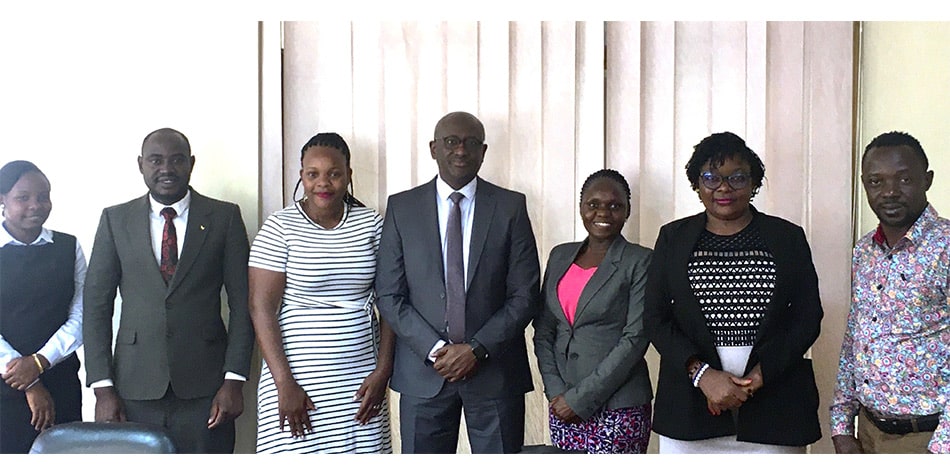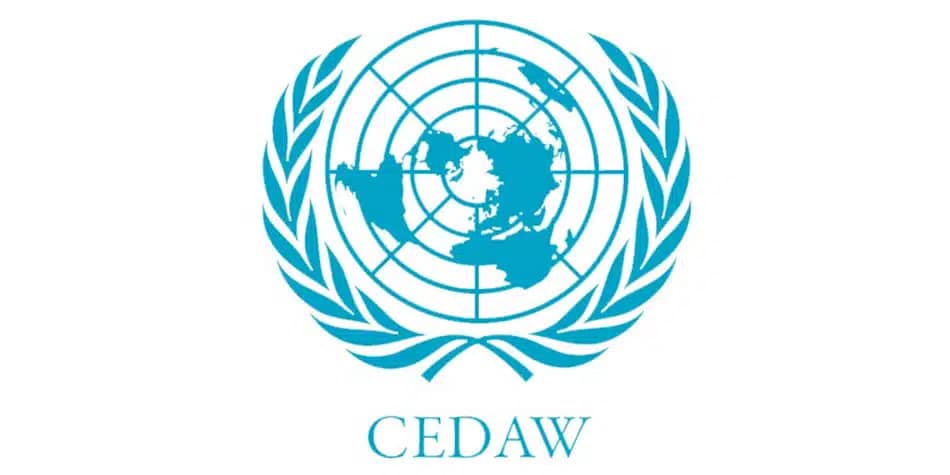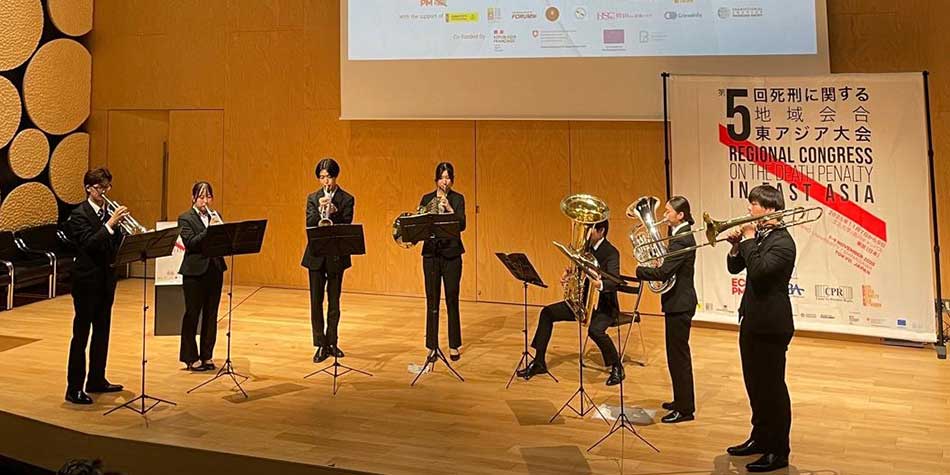
Abolition in Africa- 77th Ordinary Session of the African Commission on Human and Peoples’ Rights
Africa
The ACHPR (African Commission on Human and Peoples’ Rights) 77th Public Ordinary Session was held in Arusha, Tanzania from 20 October – 9 November 2023.
State delegations, international and regional institutions, and NGOs flocked to Arusha, also the seat of the African Court on Human and Peoples’ Rights. The World Coalition Against the Death Penalty attended with many member organizations: CHESO (Children Education Society), FHRI (Foundation for Human Rights Initiative), the FIACAT (International Federation of ACATs), LHRC (Legal and Human Rights Centre), Pax Christi Uvira, PRI (Penal Reform International) and RAL (Rescue Alternatives Liberia). Not present for the entirety of the in-person session, the World Coalition was present between 17 – 24 October.
World Coalition member organizations from Uganda in particular, found the participation in the ordinary session as an opportunity to raise more awareness about the death penalty as Uganda was studied during this session.
Abolition Advocacy for Uganda
Numerous Ugandan NGOs were present during this session, notably World Coalition members FHRI and PRI (specifically the PRI Office from Kampala). Meetings were arranged with Commissioner Idrissa Sow, the Chairperson of the Working Group on Death Penalty, Extra-Judicial, Summary or Arbitrary Killings and Enforced Disappearances in Africa as well as Commissioner Mudford Zachariah Mwandenga who oversees responding to human rights violations in Uganda at the African Commission on Human and Peoples’ Rights.
Both Commissioners were very interested in learning and understanding more about the Anti-Homosexuality Act in Uganda, which criminalizes consensual same-sex relations with the death penalty as a punishment for ‘aggravated homosexuality’. General Comment No.3, which interprets the African Charter on Human and Peoples’ Rights on the right to life, provides a clear framework in which the death penalty can be applied in member states to the African Charter including but not limited to the definition of what constitutes a threshold of most serious crimes. ‘Aggravated homosexuality’ does not meet this threshold, and both Commissioners pledged their support in holding Uganda accountable to meet her commitment under the African Charter.
While outside the scope of the World Coalition’s anti-death penalty mandate, a concerning presentation was made by Ugandan NGOs regarding a recent enforced disappearance of eighteen (18) persons whom the Ugandan government failed to account for and has since closed its case on the persons; the disappearance is due to expression of views opposed to those of the ruling government. Commissioner Sow, within the scope of his Chairpersonship mandate which includes enforced disappearances, was receptive to this concern.
The results of the review of the report on Uganda should be made available by 2024 over the course of the next few ordinary sessions.
It was further learnt that Ugandan citizens cannot directly make complaints before the African Court on Humans and People’s Rights because Uganda has not deposited a declaration to that effect since the ratification of the chatter and its optional protocol. This means that Ugandans are ineligible to go direct to the court, however, they can complain through the African Commission on Humans and people’s Rights.
Abolition Advocacy for Tanzania
While Tanzania was not studied during this session, it was the country-host. This allowed Tanzanian NGOs and activists easier access to the session, including World Coalition members LHRC and CHESO. Both were present at the meeting with Commissioner Sow to discuss Tanzania’s compliance with the Charter regarding capital punishment.
Unsurprisingly, a primary topic of discussion apart from the obstacles that are preventing abolition in Tanzania, was Tanzania’s withdrawal of from the African Court on Human and Peoples’ Rights in 2019 and how this is impacted the right of individuals and NGOs to directly access the Court. This withdrawal came after the Court’s ruling of Ally Rajabu vs. United Republic of Tanzania, which found Tanzania’s application of the mandatory death penalty a violation of the right to life, as it eliminates judicial discretion and access to a fair trial. During the meeting, solutions presented by the NGOs showed that the Eastern African Court was currently being used to fill the gap left behind by the African Court, while on-going advocacy to Tanzanian authorities for access to the African Court continues. Commissioner Sow also encouraged NGOs to go through the ACHPR to pass on individual complaints, referring to the ACHPR’s quasi-judicial powers. Unlike the African Court, one does not need to go through the government to submit complaints to the ACHPR.
Change in Participation- Prioritizing the Session over the NGO Forum
Unlike previous advocacy work within the sphere of the ACHPR, the World Coalition Against the Death Penalty did not participate at the NGO Forum in October. Held a few days before the Opening Ceremony of the session, the NGOs Forum is organized by the African Centre for Democracy and Human Rights Studies. The forum provides a gathering space for all interested civil society who wish to meet, network, and prepare for the upcoming session usually over the span of 2 to 3 days.
The World Coalition decided to prioritize participation at the Ordinary Session itself to maximize advocacy opportunities for the periodic study of Uganda, which along with Eritrea, had submitted their periodic state reports for review at the 77th Ordinary Session of the ACHPR. The World Coalition submitted reports on the current situation of the death penalty in both countries, World Coalition members from Uganda, found it the Ordinary Session as an opportune time to raise awareness.
Side-Events on the Death Penalty
In the margins of the Ordinary Session were two side-events that focused specifically on the death penalty.
One, organized by ECPM on 21 October 2023 and the other by the, Tunisian Coalition Against the Death Penalty, Culture pour la Paix et la Justice, with the participation of FHRI entitled “Rule of Law versus [the] Death Penalty. How [is it] Compatible? What [are the] Challenges?” and another on 23 October entitled “The Vanishing Death Penalty in Africa: Trends in Jurisprudence and State Practice” organized by LHRC, the Cornell Center, the Pan African Lawyers Union, and Clearly Gottlieb.
Photo Copyright World Coalition Against the Death Penalty, Members of the World Coalition Against the Death Penalty from Uganda and Tanzania and Commissioner Idrissa Sow of the ACHPR, 2023







